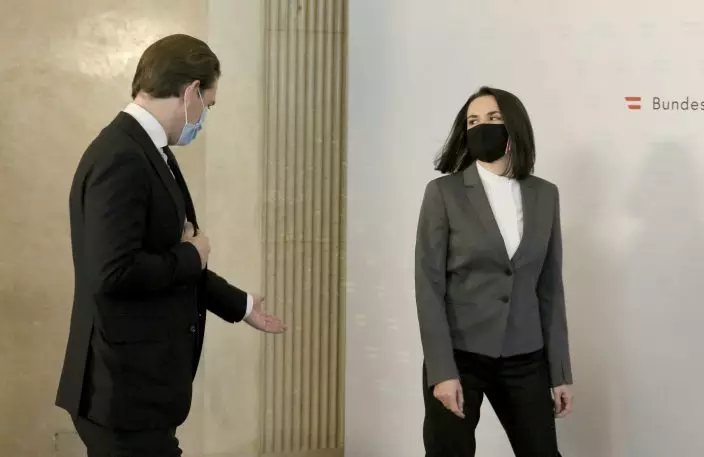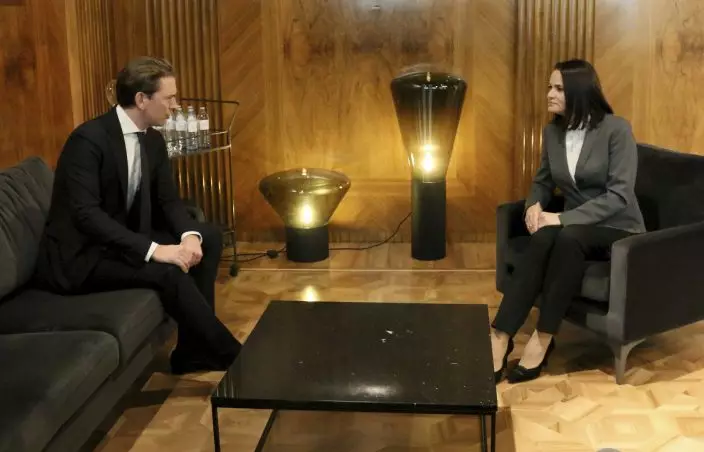About 200 disabled people rallied in Belarus' capital Thursday, continuing a nearly three-month wave of protests triggered by the disputed reelection of the country's authoritarian leader.
More than 15,000 people have been arrested since the protests erupted after President Alexander Lukashenko's reelection to a sixth term in the Aug. 9 election, which was widely seen as rigged. Most served short jail terms or were fined, but 100 have remained in jail, described as political prisoners by human rights groups.
The United States and the European Union have rejected the Belarusian vote as neither free nor fair and introduced sanctions against Belarusian officials accused of involvement in vote-rigging and the post-election crackdown.

Austrian Chancellor Sebastian Kurz welcomes Belarusian opposition leader Svetlana Tikhanovskaya, from left, before a meeting at the federal chancellery in Vienna, Austria, Thursday, Nov. 5, 2020. (AP PhotoRonald Zak)
Lukashenko's main challenger in the vote, Sviatlana Tsikhanouskaya, met Thursday in Vienna with Austrian Chancellor Sebastian Kurz. Tsikhanouskaya, who moved to Lithuania after the vote under pressure from Belarusian authorities, has pushed for Lukashenko's resignation and a new election.
Daily protests in Belarus have continued despite arrests and intimidation by the government. More than 200 disabled protesters marched Thursday across Minsk's central avenue chanting “Go away!” and “Your time is over!” to demand Lukashenko's resignation. Several people were detained.
As part of efforts to crank up the pressure on the opposition, authorities on Wednesday also detained several musicians who had played concerts in courtyards around the capital in a show of solidarity with protesters.

Austrian Chancellor Sebastian Kurz talks with Belarusian opposition leader Svetlana Tikhanovskaya, from left, during a meeting at the federal chancellery in Vienna, Austria, Thursday, Nov. 5, 2020. (AP PhotoRonald Zak)
Protests in Belarus have reached peak numbers on Sundays, attracting crowds of 100,000 or more, but the most recent Sunday protest saw a turnout of only about 20,000 as police toughened its response, blocking streets and dispersing groups of demonstrators. Authorities also launched criminal proceedings against more than 230 participants in Sunday's protest.
“We want to see the country as it was before the election,” Lukashenko said at an award ceremony on Thursday. “And it shall remain like that for as long as I'm the president.”


